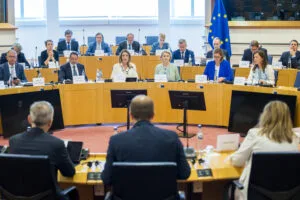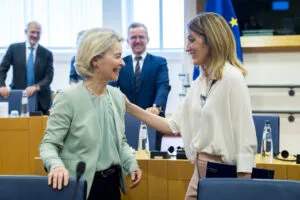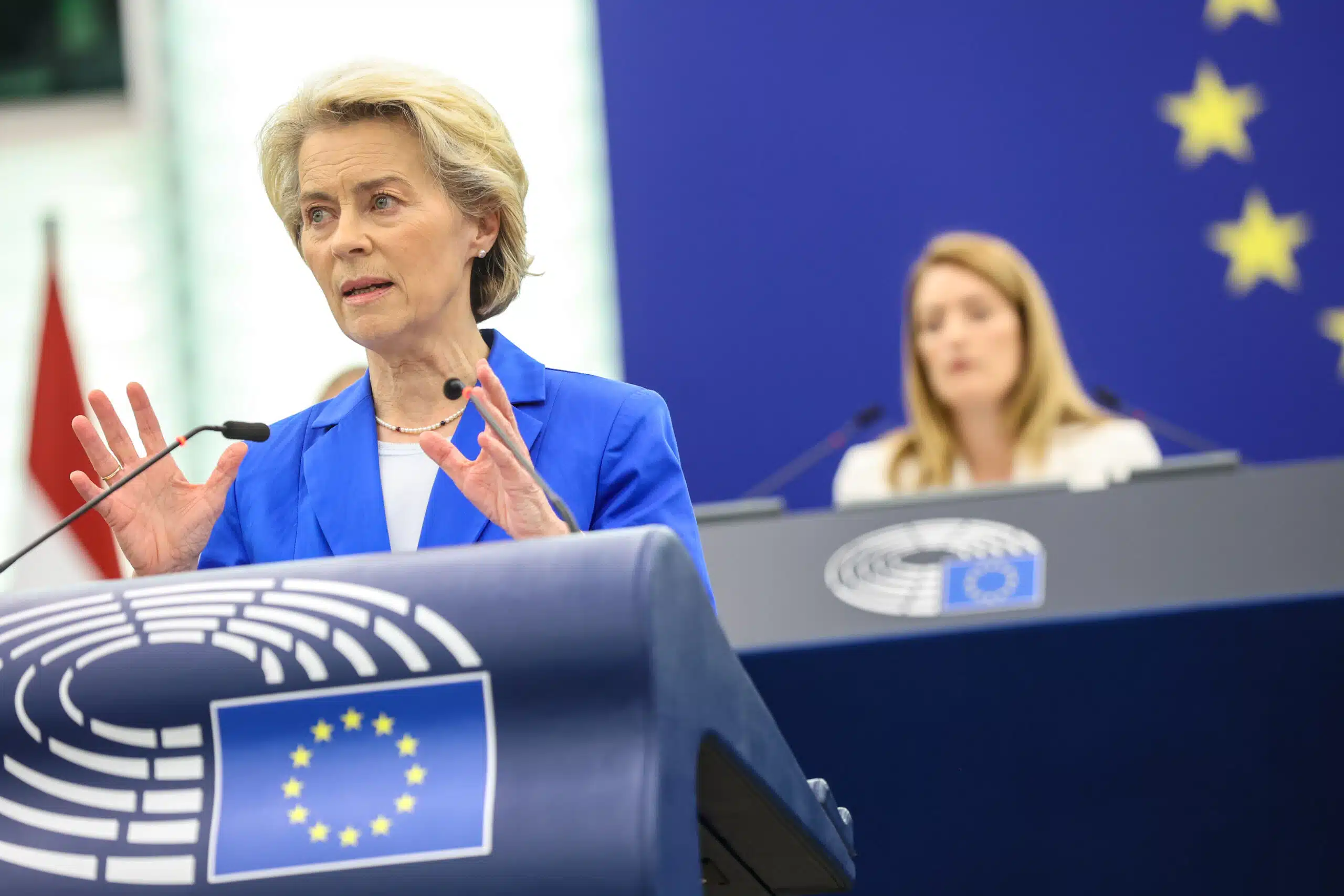Brussels – Monday to Thursday. For Ursula von der Leyen, the moment of truth is approaching for her attempt to confirm herself as head of the European Commission for another five years. The date and time to be marked in red in the calendar is 1 p.m., Thursday, July 18—as decided at today’s (July 11) Conference of Group Presidents—when the 720 MEPs will vote in plenary session in Strasbourg on the June 27 nomination by European Council for a second Commission presidency. But before the decisive moment for the number one incumbent and Spitzenkandidatin (leading candidate) of the European People’s Party in the June 6–9 elections, there will be a few more high-intensity days to try to secure a majority of votes. At the moment, this seems attainable but not so secure.

The two weeks so far have been a real tour de force for von der Leyen, who has been engaged in a confrontation with parliamentary group chairmen and with the forces in the majority—from the Populars to the Social Democrats to the Liberals—to outline her priorities for another five-year term and provide reassurances on the major concerns of each European family. The majority is there, but on the vote to confirm the presidency of the EU executive, it is less solid than expected: Populars, Social Democrats, and Liberals can count on 401 seats to date—40 more than the minimum threshold of 361—but the risk of turncoats in the plenary is particularly high.
Considering the 2019 election, the same majority—populars, social democrats, and liberals—had 444 seats, yet von der Leyen was approved by only 383 votes. It means that compared to the majority on paper, 13.5 per cent of Popular, Socialist, and Liberal MEPs were missing (even more if one considers the decisive contribution of the 14 from the 5 Star Movement and the 26 from the Polish ultra-right of Law and Justice). Translated into the summer of 2024—although times have changed, not the uncertainty—would mean 54 fewer votes than the 401 provisional seats of the European People’s Party (EPP), the Progressive Alliance of Socialists and Democrats (S&D) and Renew Europe groups: 347 votes in favour, 14 fewer than the minimum threshold for election.

That is why von der Leyen has clearly tightened relations with the Greens/Ale group (with two meetings between July 1 and July 10), whose 53 members make them particularly attractive, although she has avoided excessive breakaways because of the risk of increasing the share of turncoats among her own populars, particularly Forza Italia. At the same time, she has not closed the door to some (but not all) of the 78 members of the European Conservatives and Reformists (ECR) group, where the main suspects are the 24 elected from the ranks of Fratelli d’Italia. Social Democrats, Liberals, and Greens restated the red line of “no agreement” with the far right, and ECR’s co-chair, Nicola Procaccini, warned at the end of the Conference of Presidents that “the programmatic platform is too similar to that of the past five years, to date this leads us toward a negative vote, but we still have to meet with von der Leyen.”
The meeting between the Commission chairwoman running to succeed herself and the conservative right-wing group is scheduled for next Tuesday (July 16), on the very day of the inauguration of the legislature and the voting of the presidency and vice-presidencies of the EU Parliament, when the incumbent chairwoman, Roberta Metsola, will also be confirmed to succeed herself, barring any last-second surprises. The day before (July 15), there will be a confrontation with the Left Group, which, however, already made clear that its 46 members will vote against. On Thursday in Strasbourg, the Berlaymont number one will have to win many bets: to limit the number of turncoats among the Populars, Social Democrats, and Liberals, to hold on to the 53 Greens, to convince a part of the Conservatives, also thanks to the secrecy of the ballot. And, above all, to the green light from Rome, as anticipated by ECR’s own co-chair and FdI MEP: “The decision will be made on the basis of the indications we will receive” from the Prime Minister, Giorgia Meloni, who at the Council vote abstained on von der Leyen (but had voted against the other two institutional appointments of António Costa and Kaja Kallas).
English version by the Translation Service of Withub






![[foto: Wikimedia Commons]](https://www.eunews.it/wp-content/uploads/2025/04/alzheimer-120x86.png)


